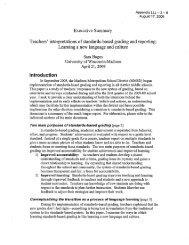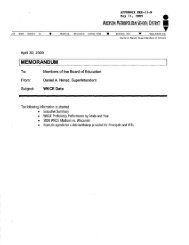MADISON METROPOliTAN SCHOOl DISTRICT - School Information ...
MADISON METROPOliTAN SCHOOl DISTRICT - School Information ...
MADISON METROPOliTAN SCHOOl DISTRICT - School Information ...
Create successful ePaper yourself
Turn your PDF publications into a flip-book with our unique Google optimized e-Paper software.
Changes in Program Implementation 2011-2012<br />
MMSD has a longstanding history of implementing the Reading Recovery program. In order to<br />
maintain its effectiveness, the program continues to evolve. This adaptability is necessary for us to meet<br />
the changing needs of our student population, to fit with building instructional designs, and to reflect our<br />
district-wide system approach to responses to intervention. While being adaptive to change within our<br />
district, an important responsibility of Reading Recovery is to maintain fidelity to the nation-wide<br />
Reading Recovery Standards and Guidelines, so that we can assure that our implementation of the<br />
program is indeed research-based.<br />
This year, Reading Recovery teachers embraced two major changes in implementation. The<br />
selection of student procedure was more clearly defined to include a much wider band of students. As<br />
stated in our standards and guidelines, students were not excluded from the program due to behavior,<br />
attendance, language development, or an already diagnosed learning disability. Reading Recovery sets<br />
out to serve the students who need the intervention the most, and not necessarily those who will make<br />
the greatest gains from the support. Serving harder-to-teach children, often with issues that create<br />
challenges to learning, impacted our data.<br />
The second change in program implementation had to do with the criteria used to classify the<br />
student as "discontinued" at the end of their time in the program. Discontinuation is a term used within<br />
our program to describe "reading proficiency". It implies that this student has reached a stage in literacy<br />
development to make them self-sufficient and very likely to continue on as a proficient reader in<br />
subsequent years. This "stage" can be determined most accurately by close analysis of the behaviors<br />
the child exhibits in reading and writing instead of a benchmark text reading level that may have been<br />
used in the past. While building this understanding amongst reading recovery teachers, our district<br />
engaged in conversations with other school districts around the state of Wisconsin regarding proficiency<br />
bands for text reading level at the first grade level, and the advised proficiency bands for students to<br />
meet in order for them to be on track for college and career readiness in their future. Given both of these<br />
discussions, the criteria for reading recovery students became more defined and overall, harder to<br />
achieve than in previous years. This change also had significant impact on our data.<br />
We trust that our district stakeholders of Reading Recovery will continue to support the decisions<br />
made to allow our program to evolve and also maintain its fidelity.<br />
93


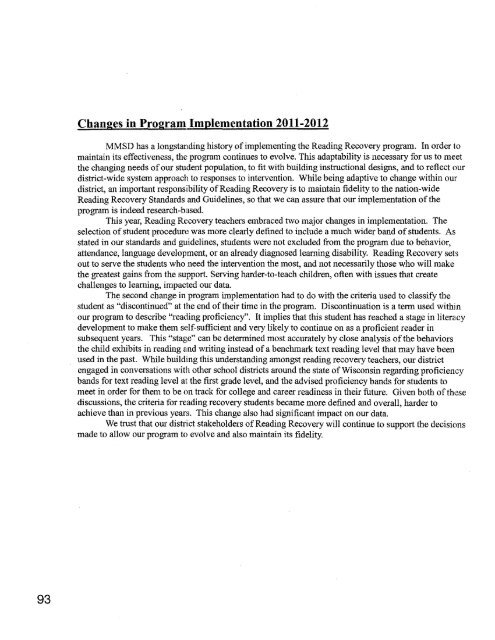
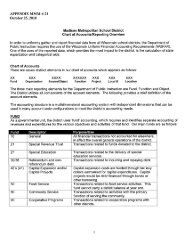
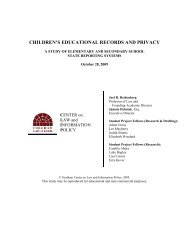
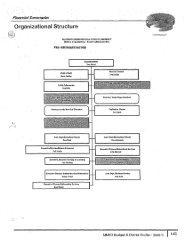

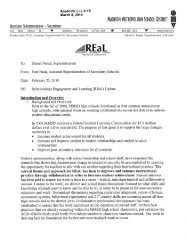
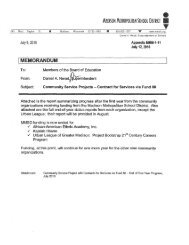
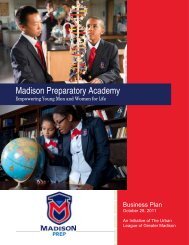
![by Shaina Wright [PDF] Ralph Waldo Emerson Prize 2006 - School ...](https://img.yumpu.com/26083584/1/174x260/by-shaina-wright-pdf-ralph-waldo-emerson-prize-2006-school-.jpg?quality=85)
